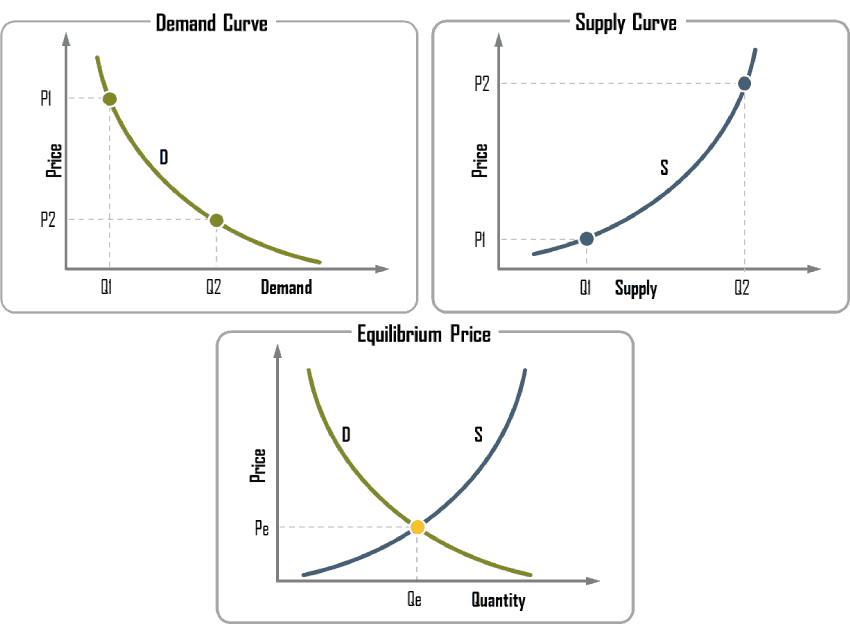

Globalization is an economic concept that works by easing the movement of goods and people across borders. To ease the process, all investments, trade, and markets get integrated, and barriers get minimized or eliminated, to ensure different nations enjoy the flow of goods and services. Globalization has led to increased production for businesses in order to meet global demand. Increased production means more natural resources are used and this can be used up before they are regenerated leading to a negative impact on the environment. On the negative side, globalisation has resulted in a reduction in the sovereignty of nations as they have to heed some internationally made decisions.
The quality level of products and services will always be a difficult issue that developing countries will have to deal with until they reach the required maturity level. Instead, the coming together of various cultures has made the world today a better place. The welcoming of people from various backgrounds and civilizations has resulted in the creation of new cultures, thus leading societal growth. Globalization has enabled international trade, thus allowing different countries to utilize competitive advantages in terms of production. This means if two countries are producing the same product, but say country D produces the product at a lower cost than country C, then country D will be producing and export the product to country D. The following is a non-exhaustive list of policies that can be adopted by governments to reduce the negative impacts of globalisation.

Globalization makes the countries adopt the factors that are beneficial in the long run. A website to provide information and resources which addresses sustainable living. Looking after our planet starts today and I aspire to spread the message globally in a joint effort to make the change, we so desperately need.
But it was the international investment that drove globalization by increasing economic integration. Many countries have experienced the benefits of international investments, namely foreign direct investments, commercial loans, and positive and negative effect of globalisation foreign portfolio investments. Based on this analysis of both positive and negative effects, it has become evident that globalization is a complex process that has large-scale impacts on both developing and developed countries.
Follow Us on Social Media
Most industries employ only skilled workers due to complicated systems of operation. Instead of staying without an income, most people don’t mind the displacement as long as they are going to earn for a living. Globalization has notably declined the gap between rich and poor people. For many centuries there has been a wide gap between these groups, a gap that seemed to widen every year. Globalization enabled poor people to have access to job opportunities. A long time ago people who worked in government sectors and companies got high salaries, but now even overeducated employees earn a little money.
- Since trade among different economies occurs at a more favorable rate, FDI tends to increase and benefit from it.
- There are many cases where unethical behavior has destroyed an area.
- Several concepts and models related to sustainable development have also been disseminated across the greater public.
Nowadays people understood the significance of education and standards of living as foreigners settled in these countries. Consequently, locals went to schools established by the settlers and got employment in their companies and industries. They were able to raise the living standard of their families by using new knowledge.
What are the negative effects of globalisation?
Due to globalization someone in China can easily communicate and sell their products to an individual in the US. The rise of globalization is largely attributed to major changes in the telecommunications and transportation industries. Globalization today allows for goods to be made and sold all over the world. Investments in new technologies can not only lower costs but also reduce greenhouse gas emissions- e.g. investments in solar or geothermal technology to provide energy. More and more tracts of forests are being removed to meet increasing global needs. These areas are cleared for logging and for activities such as cattle farming, to name a few.
As economics and theory of globalization, often lead to making available goods at competitive prices when traded across borders. It translates to industry and global corporations moving from richer and developed nations. Where labor is expensive to develop nations in search of talent, tax rebates, and leveraging technology. The lowered demand for internal labor as a result of decreased money supply is the precursor to a vicious cycle of unemployment due to cyclical demand.
By the year 2050, it is estimated that carbon dioxide emissions from transportation would have increased by _____ % of their 2015 levels. Globalisation has caused a loss of _____ through imposing western ideologies on nations. International Transport Forum Worldwide transport activity to double, emissions to rise further. Check out our explanation on Globalisation to learn more about this process. Learning ExperienceMaster real-world business skills with our immersive platform and engaged community.
Furthermore, aside from fostering international cooperation across the global research community, these programs have encouraged interdisciplinary and transdisciplinary research. Are you worried about your assignment on the positive and negative effects of globalization on culture? Don’t panic and contact the economics experts at Tophomeworkhelper.com. From extensive academic assistance to writing flawless economics homework, our academicians can provide you with the perfect assignment help.
What Are The Negative Effects Of Globalization? Find Out Here
This term became popular in the 1990s when ordinary people got access to the global net. Globalization pertains to the transborder business along with cross-boundaries investments. Multinational institutions have organized a global order to operate trade relations through accepted rules. This concept was created to make intercultural cooperation easy and prevent conflicts from being escalated into unmanageable disputes.
Positive and negative effects of globalization
This can also affect the balanced economic development of the country. This results in the ownership of foreign Institutions over local resources. Every company wants to excel and dominate the market with innovative products of the highest quality standards. Competition from various firms pushes a company to do better and produce a variety of products to its customers. Globalization has enriched the world culturally, scientifically, as well as economically. Countries joining together through globalization will remove the cultural barriers and make the world a global village.
The negative outcome is that the individuality of these local cultures starts to fade. It has received harsh criticism, in particular from those who oppose the free market economy. The likes of Joseph Stiglitz and Ha-Joong Chan have claimed that globalization doesn’t reduce poverty but in fact preserves it. Even the International Monetary Fund has stated that the introduction of new technology and investment of foreign capital in the developing countries may have increased the level of inequality. According to IMF, only a relatively small number of countries are enjoying the benefits of globalization. And the negative effects have been observed in developed countries as well.
The initiative creates trade routes through over 70 nations and is the centerpiece of China’s foreign policy. Critics say China’s foreign affairs strategy often puts small nations in debt to China so China can leverage political power and favors in the future. If you ask most economists about the impact of globalisation on the world economy, they will echo the same thing that it offers a massive benefit to economies in the world. It achieves this by creating a more efficient market, enhancing competition amongst individual economies, and facilitating an increase in wealth among economies in the world. When there are multiple producers competing for a stake in the economy, it is always a positive sign for consumers, as such competition will bring about the production and delivery of quality goods and services. For domestic companies to survive in the market, they are forced to raise their customer satisfaction levels, as well as their standards, while fighting competition from foreign companies.
POSITIVE EFFECTS
It has more to do with poor governance and economic policies and ineffective reforms. There is also no evidence that trade can increase poverty or reduce growth. In contrast, when countries open up to trade, their growth tends to accelerate and their standards of living tend to increase. The benefits of the growth in developed countries also trickle down to the poor countries.
The effects of globalisation are spatially uneven because it has been speculated that the richer, developed countries generally do not have a genuine interest in increasing global equity. Typically, they adopt only a select number of globalisation policies which affect them positively at the detriment of the poorer, less developed world. In the rest of this explanation, we examine some of both the positive and negative impacts of globalisation.
There has also been the sharing of technology between nations with helps with advancements, particularly in the developing world. In addition, the movement of people increases cultural diversity in nations and makes us more tolerant and open about other cultures. Furthermore, globalisation has caused the emergence of new social movements. This includes groups dedicated to environmental conservation and women’s rights, as well as a host of other causes. In almost all developing countries over half of the working population relied on casual jobs in industries until globalization took root.
Western styles, since are symbols of affluence and power, the elite often embraces western styles of products and pattern of behavior in order to impress others. Today Western culture and patterns of behavior and language are staples of international business (Asgary N. and Walle A.H.,2002). It would be rather difficult to discuss the extent of the positives that globalization has had on the world at large.

